Preparing for Natural Disasters
Helpful Documents
- Emergency Operations Plan
- Federal Emergency Management Agency (FEMA) Preparing for Disaster Flyer
- Food & Water in an Emergency
- Tornado Safe Rooms
Natural Disasters
Severe Weather
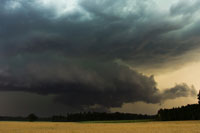
By definition, a severe thunderstorm is a thunderstorm that contains hail that is 3/4 of an inch or greater in diameter, 58 mile-per-hour or greater winds, tornadoes, or any combination of these three elements. Learn more about severe weather and how to prepare for it.
Lightning

Most of the electrical energy in a thunderstorm is dissipated within the clouds, as lightning hops between the positively and negatively charged areas. Lightning becomes dangerous, though, when it reaches for the Earth. Learn more about lightning and how to prepare for it.
Tornadoes
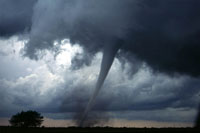
Tornadoes generally form in a part of rotating thunderstorm, or super cell, called a mesocyclone. A mesocyclone draws energy into the storm, helping the storm to last for hours. Learn more about tornadoes and how to prepare for them.
Flooding

Flash floods usually result from intense storms dropping large amounts of rain within a brief period. They occur with little or no warning and can reach full peak in only a few minutes. Learn more about flooding and how to prepare for it.
Extreme Heat
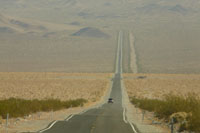
Temperatures that hover 10 degrees or more above the average high temperature for the region and last for several weeks are defined as extreme heat. Learn more about extreme heat and how to prepare for it.
Wildfires

The threat of wild fires for people living near or using recreational facilities in wilderness areas is real. Advance planning and knowing how to protect buildings in these areas can lessen the devastation of a wild fire. Learn more about wildfires and how to prepare for them.
Winter Weather
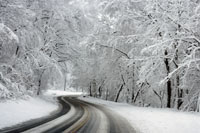
Everyone is potentially at risk during winter storms. The actual threat to you depends on your specific situation. Being prepared and informed may save your life. Learn more about winter weather and how to prepare for it.
Earthquakes
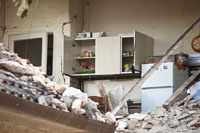
Some of the strongest earthquakes in U.S. history occurred in 1811 and 1812 near New Madrid, MO. Several of the quakes are estimated to have reached an 8.0 or higher on the Richter Scale. Learn more about earthquakes and how to prepare for them.
